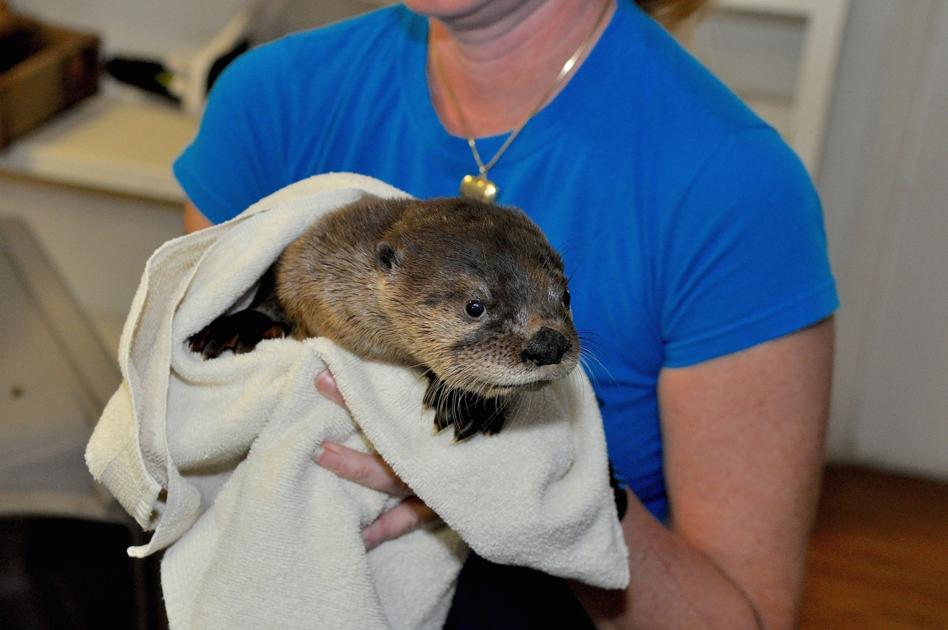OWLS, aquarium transport rescued otter pups to Asheboro Zoo - Carolinacoastonline
OWLS, aquarium transport rescued otter pups to Asheboro Zoo - Carolinacoastonline |
| OWLS, aquarium transport rescued otter pups to Asheboro Zoo - Carolinacoastonline Posted: 17 May 2020 09:00 PM PDT  NEWPORT — Two baby otters rescued and brought to the Outer Banks Wildlife Shelter now have a temporary home at the Asheboro Zoo. Outer Banks Wildlife Shelter Director Brooke Breen said Wednesday the otters were rescued the end of April in two separate incidents and brought to the shelter. She contacted Dr. Emily Christiansen, a veterinarian with the N.C. Aquarium in Pine Knoll Shores, who agreed to help transport them in carriers to the zoo. Dr. Christiansen picked up the two otters Wednesday from OWLS, then drove them to a wildlife rehab center in Rocky Mount, where she met up with an Asheboro Zoo wildlife biologist. The otters were then transported on to the zoo. "They will be placed in an outside enclosure where they can learn to swim and survive," Dr. Christiansen said. "The main goal is to get them released back into the wild." Asheboro Zoo Public Relations Officer Debbie Foster Fuchs confirmed Thursday the otters were adjusting to their new home. "Our Director of Animal Health, Dr. JB Minter, says they are doing well and resting," Ms. Foster Fuchs said. She added that the two young otters joined a third third that was recently rescued and transported from Lumberton. "The three will be rehabbed as a group," she said. When the otters are ready for release, Ms. Foster Fuchs said it has not yet been determined if they will be brought back to Carteret County or be released somewhere else. As to where the otters were rescued, Ms. Breen said the first otter, a six-week-old female, was found April 25 in the Peletier area. "Someone found it in the roadway after a big rain. We're assuming the marsh flooded and it got swept away from its parents," Ms. Breen said. The second otter, about two months old, was found April 27 near the Cedar Island Bridge. "They found the mother nearby. She had been hit by a car," Ms. Breen said. She didn't know whether the second otter was a male or female. Prior to transport to the zoo, Ms. Breen had been taking the otter pups home with her because they must be fed every three hours. That's no easy task considering OWLS is also in the middle of a very busy baby bird and mammal season. Ms. Breen said she fed both baby otters small fish, although the youngest was first fed a special formula until it was weaned on to fish. While it's somewhat unusual for OWLS to receive otters, Ms. Breen said they have gotten them in the past. She said it's important for drivers near marshy areas to keep an eye out for otters crossing roads. "Just be aware they're out there and they are going to be crossing marshes," she said. "They are most active at dawn and dusk." She added that if someone finds a baby otter, first make sure it's injured before bringing it to OWLS. "Many times the parents will be nearby and if they're not injured the parents will take care of them," she said. "Just look around and make sure the parents haven't been killed." If someone feels it's necessary to rescue an otter, baby or adult, Ms. Breen said it's best to wear gloves because they can bite. It's also helpful to put them in a box for transport. As well as contacting OWLS, the public can contact the Wildlife Resource Commission if an otter is found, Ms. Breen added.
Contact Cheryl Burke at 252-726-7081, ext. 255; email Cheryl@thenewstimes.com; or follow on Twitter @cherylccnt. |
| You are subscribed to email updates from "big fish aquarium" - Google News. To stop receiving these emails, you may unsubscribe now. | Email delivery powered by Google |
| Google, 1600 Amphitheatre Parkway, Mountain View, CA 94043, United States | |
Comments
Post a Comment